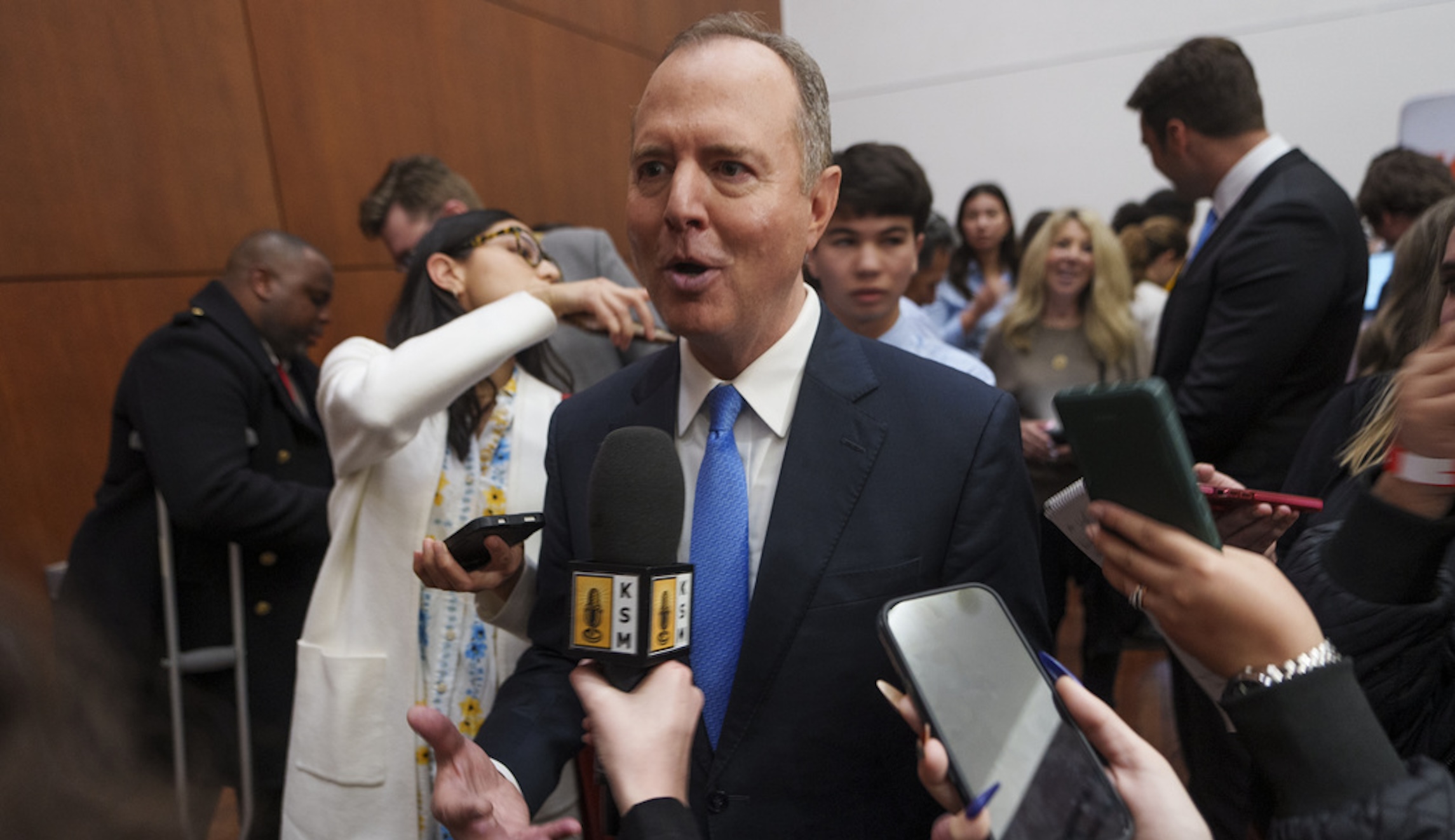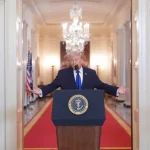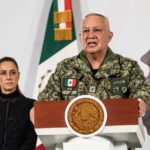

Rep. Adam Schiff’s (D-CA) Senate campaign is vastly outspending his rivals as he tries to lock up a first-place finish in next month’s primary.
Schiff is spending heavily as he tries to hold on to his front-runner status in the final month before voters decide who will advance to the general election contest. The Burbank congressman has consistently led his four competitors since last year in both fundraising and polling, though the margins are close and the race is still fluid.
His campaign has spent $5.8 million in advertising in the last two weeks alone, more than double the $2.5 million Rep. Katie Porter’s (D-CA) Senate campaign has spent in that time, according to an analysis from AdImpact. In addition to TV broadcast ads, Schiff dominated political ads on Facebook and Google, trailing only the Biden Victory Fund and Americans for Prosperity Action for spending on digital ads nationwide.
Schiff has a formidable $35 million war chest to fund this expensive campaign cycle. Porter, an impressive fundraiser herself, and Steve Garvey, the Republican former first baseman for the Los Angeles Dodgers and the San Diego Padres, have trailed slightly behind Schiff and are fighting for second place.
Rep. Barbara Lee (D-CA), a progressive icon who represents the Oakland area in the House, has often placed in fourth.
California operates with a “jungle primary” system, in which candidates from all parties compete to be one of two finalists in the general election. This year’s primary takes place on March 5.
Given the state’s heavily blue tilt, there have been multiple instances in which two Democrats advanced to the general election. Schiff is widely expected to be on the November ballot, but his competitor remains an unanswered question.
Pollsters say a race against Porter, who represents conservative Orange County despite her progressive bona fides, would be far more competitive for Schiff than going one on one against Garvey, who is likely to face inroads building a majority voting coalition as a Republican.
Schiff’s campaign unveiled a new ad this week going after Garvey, an apparent acknowledgment that the two are the leading candidates in the race.
The 30-second spot contrasts Schiff and Garvey’s voting record in an effort to cast the latter as “too conservative for California,” pointing out that he voted for former President Donald Trump in the past two elections. Garvey was pressed on this during their primary debate late last month, where he was noncommittal about who he planned to vote for in November.
Porter and her chief of staff were quick to react to the ad, which she panned as “brazenly cynical.”
“Adam Schiff knows he will lose to me in November,” Porter wrote on X, formerly Twitter. “That’s what this brazenly cynical ad is about — furthering his own political career, boxing out qualified Democratic women candidates, and boosting a Republican candidate to do it. We need honest leadership, not political games.”
“I would not want to run against Katie Porter in a general election either!!” Nora Walsh-DeVries, Porter’s chief of staff, wrote on the platform.
Schiff’s campaign defended the spot when reached by the Washington Examiner for comment on Porter’s criticism, saying in a statement that Garvey’s standing in the polls made it important to showcase his voting record to Californians.
“No one in this race has fought harder than Adam when it comes to protecting our democracy, our economy, and our planet,” Marisol Samayoa, a Schiff campaign spokeswoman, said. “Steve Garvey will be a rubber stamp for Donald Trump’s extreme agenda if elected. California voters deserve to know the differences between the two top-polling candidates.”
Samayoa declined to comment on the ad spending itself.
Schiff has the backing of former House Speaker Nancy Pelosi (D-CA) and former Sen. Barbara Boxer, who served with the late Sen. Dianne Feinstein, whose seat Schiff is vying for. Porter has the support of Sen. Elizabeth Warren (D-MA), while she and Lee each have the endorsements of various progressive groups.
In addition to the campaign ads, the race has also seen steep divisions over the issue of Middle East policy.
Lee is revered by progressives for being the sole member of Congress to vote against the war authorization to invade Afghanistan, taken three days after the 9/11 attacks. The prominent anti-war activist has been vocal since the Oct. 7 attacks on Israel in calling for a ceasefire in Gaza, setting up a geopolitical dispute on the campaign trail.
Schiff, who is Jewish and a staunch pro-Israel voice, has vocally defended Israel’s right to defend itself and eliminate Hamas terrorists from Gaza. Porter, on the other hand, began backing a “lasting bilateral ceasefire,” which would be conditional on the return of hostages and Hamas relinquishing “operational control” of Gaza, in late December.
The three sparred about the issue at their debate late last month.
Lee defended her calls for a “permanent ceasefire” in the region, arguing that Israel’s military campaign would “never lead to peace” or a lasting two-state solution. Schiff pushed back on the notion that Israel taking out Hamas would make a two-state solution impossible, pointing out that Israel has an obligation to ensure its people’s safety.
“We have to get back to a road toward a two-state solution, but Israel has to defend itself,” Schiff said. “We can’t leave Hamas governing Gaza. They’re still holding over 100 hostages, including Americans. I don’t know how you can ask any nation to cease fire when their people are being held by a terrorist organization.”
Lee responded by cautioning that U.S. national security could be negatively affected if Israel were to cause a regional crisis.
CLICK HERE TO READ MORE FROM THE WASHINGTON EXAMINER
“I said then, and I’m saying now: It could spiral out of control,” Lee said. “You see what’s happening. It’s escalating in the region. We have to make sure that our national security is also protected.”
Porter tried to strike a middle ground when asked to weigh in, declining to say that she backed an immediate ceasefire. She instead told moderators, “’Ceasefire’ is not a magic word. You can’t say it and make it so. But we have to push as the United States, as a world leader, for us to get to a ceasefire and to avoid another forever war.”






